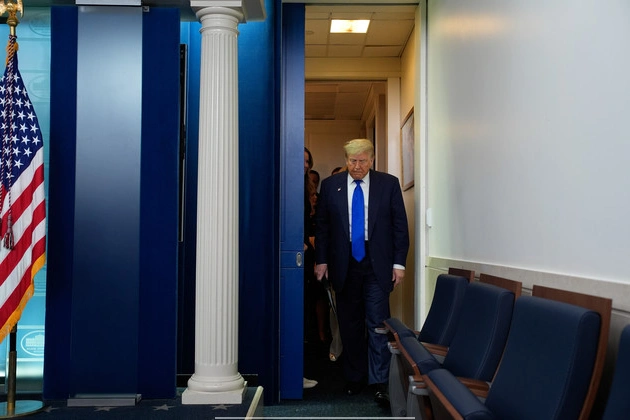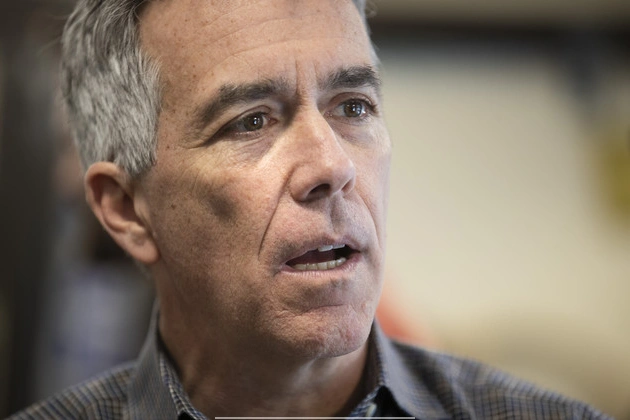
President Donald Trump is urging Senate Majority Leader John Thune to crack down on tax credits for wind and solar energy as part of the GOP megabill, siding with House conservatives who want to phase out those credits more quickly, according to three people familiar with the negotiations.
The late-stage effort has involved direct conversations between Trump and Thune over the past two days. The intervention from Trump centers around a technical provision that could determine whether hundreds of planned projects are able to qualify for the wind and solar incentives, according to the people granted anonymity because they were not authorized to speak publicly about the conversations.
Trump’s Push for Changes
The president’s involvement has emerged as a complicating factor as Republicans aim to start voting on the megabill as soon as Saturday.
Sen. Kevin Cramer (R-N.D.), a close Trump ally, confirmed that Trump is directly involved in the push to further temper the Inflation Reduction Act credits.
“I talked to POTUS about it this morning and he certainly wants the renewables out ASAP,” Cramer said Friday.
The approach pushed by Trump would match restrictive language in the House-passed reconciliation bill, H.R. 1, that would determine eligibility for wind and solar investment and production tax credits based on when those projects enter into service.
It’s a departure from Senate Finance Committee language backed by moderates allowing projects to receive credits based on when they begin construction.
Implications for Renewable Energy
It’s unclear whether Thune plans to include the so-called “placed in service” standard in the final bill text. Doing so would put moderate senators who have pushed a slower schedule for sunsetting those incentives in a major bind, forcing them to choose between rejecting Trump’s agenda or allowing the gutting of tax credits that could lead to canceled projects, job losses and higher electricity prices in their states.
Thune’s office and the White House did not immediately respond to requests for comment on Friday.
Trump’s new push follows his Truth Social post last weekend declaring, “I HATE ‘GREEN TAX CREDITS’ IN THE GREAT, BIG, BEAUTIFUL BILL.”
Industry Concerns
Renewable energy industry officials and advocates argue that a “placed in service” requirement is difficult for energy project developers because their timelines could be derailed by permitting delays, snags in connecting projects to the grid and other factors outside their control. Such a requirement would functionally end the credits for many planned projects, they say.
Reverting to more restrictive placed in service language would likely see pushback from moderate senators such as Sen. Lisa Murkowski (R-Alaska), who said Thursday that such a move would be “disastrous in my state.”
Another moderate who has pushed back on IRA rollbacks, Sen. Thom Tillis (R-N.C.), declined to say Friday night whether he had heard about a decision on placed in service language, but called the Senate Finance Committee’s approach “a more rational way of doing it.”
Conservative Support and Criticism
Some Senate conservatives have backed the change, which they said will help keep Republicans’ campaign promise to end the Inflation Reduction Act subsidies.
Texas Sen. Ted Cruz said earlier this week “there is a strong commitment to end the Green New Deal subsidies by the end of President Trump’s term” — an objective, he said, “that we’re working hard to accomplish.”
The effort has been supported by outside conservative voices in recent days, including Alex Epstein, a vocal opponent of wind and solar subsidies who has met with Senate Republicans in recent weeks.
Epstein said Friday night that Trump is “aware that the Senate had watered down in some significant way what the House did.”
But he said moving to a placed in service standard is not a done deal and he is “not letting up myself until I see a law with this in it.”
Official Statements
Leading Trump officials like Interior Secretary Doug Burgum, who also chairs the National Energy Dominance Council, and Energy Secretary Chris Wright, have also repeatedly criticized wind and solar energy, arguing those intermittent resources are unreliable and overly reliant on tax subsidies.
In a post to X Friday night, Burgum wrote that Trump “promised to reverse the Biden administration’s disastrous energy policies, and the One Big Beautiful Bill delivers on this promise by ending the Green New Scam and investing in reliable, affordable baseload power!”















